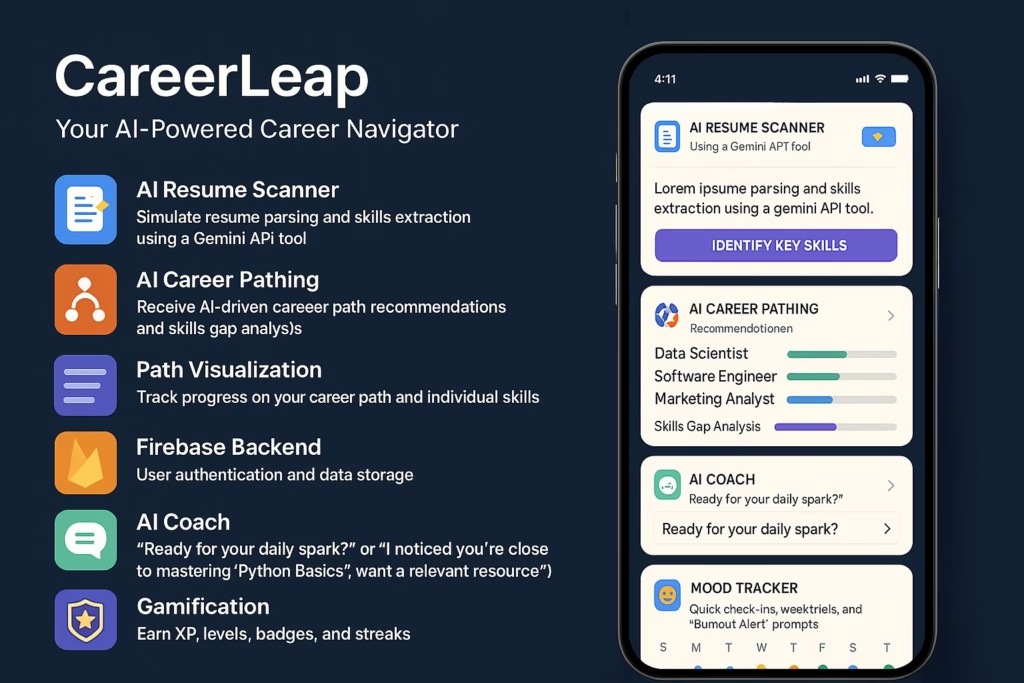Beyond Tech: Exploring Non-Technical Career Paths at Amazon

When “Amazon Careers” comes to mind, the first images that often surface are those of brilliant software engineers coding the next big AWS service or dedicated associates managing the intricate dance of packages in a fulfillment center. While these technical and operational roles are undeniably crucial to Amazon’s global empire, they represent only a fraction of the diverse career landscape within this multifaceted organization. Lurking beyond the lines of code and the conveyor belts is a vibrant world of non-technical career paths, equally vital, challenging, and rich with opportunity.
This guide aims to illuminate these often-undersung yet critical non-technical roles at Amazon, focusing particularly on powerhouses like Marketing, Human Resources (HR), Finance, and non-engineering Operations. We’ll explore what it takes to succeed in these fields within Amazon’s unique culture, the types of roles available, the skills required, and how these functions contribute to the company’s relentless pursuit of customer obsession and innovation. If you’re a professional in these domains wondering if Amazon has a place for you, the answer is a resounding yes – and the opportunities might be more expansive than you imagine.
I. The Indispensable Role of Non-Technical Functions at Amazon
Amazon’s success isn’t built on technology alone. It’s a symphony of precisely orchestrated functions, where non-technical teams provide the strategic direction, operational support, talent acquisition, financial stewardship, and customer engagement necessary to bring Amazon’s ambitious visions to life.
- Driving Customer Engagement and Growth (Marketing): How do millions learn about Prime Day deals, new Alexa skills, or the benefits of AWS? Through sophisticated marketing campaigns conceived, executed, and analyzed by talented marketers across various disciplines.
- Fueling the Talent Engine (Human Resources): With hundreds of thousands of employees globally, attracting, hiring, developing, and retaining top talent is a monumental task managed by Amazon’s HR professionals. They are the custodians of the company’s most valuable asset: its people.
- Ensuring Financial Health and Strategic Investment (Finance): Every new initiative, every market expansion, every operational improvement is underpinned by rigorous financial analysis, planning, and control. Amazon’s finance teams are critical decision-support partners across the business.
- Orchestrating the Operational Backbone (Non-Engineering Operations): While engineers design systems, a vast array of non-engineering operations professionals manage complex supply chains, logistics networks, program rollouts, customer service strategies, and business processes that keep the Amazon machine running smoothly and efficiently.
These functions are not siloed; they are deeply integrated into every facet of Amazon’s businesses, from retail and AWS to devices and entertainment.
II. Marketing at Amazon: Crafting Narratives, Driving Demand
Amazon’s marketing teams are at the forefront of connecting with customers, building brand loyalty, and driving growth across its diverse portfolio.
- Types of Marketing Roles:
- Product Marketing Managers (PMMs): Define the go-to-market strategy for new products and services, develop positioning and messaging, and work closely with product and sales teams. This is prevalent in AWS, Devices (Alexa, Kindle), and new ventures.
- Digital Marketing Specialists: Manage online advertising campaigns (PPC, SEO/SEM, display, social media), analyze performance data, and optimize for ROI.
- Brand Managers: Develop and protect the Amazon brand (and its sub-brands), ensuring consistent messaging and brand experience.
- Content Marketers/Strategists: Create compelling content (blog posts, videos, case studies, whitepapers) to engage target audiences and support marketing objectives.
- Lifecycle Marketing Managers: Focus on customer retention and engagement through email marketing, in-app messaging, and loyalty programs.
- Events Marketing Managers: Plan and execute large-scale events like AWS re:Invent or smaller, targeted customer events.
- Market Research & Analytics: Provide data-driven insights into customer behavior, market trends, and campaign effectiveness.
- Skills for Success:
- Customer Obsession: Deeply understanding customer needs and pain points is paramount.
- Data-Driven Mindset: Amazon marketers are expected to “Dive Deep” into data, measure everything, and make decisions based on analytics.
- Strong Communication: Excellent written and verbal skills are essential for crafting compelling narratives and collaborating across teams. The ability to write effective 6-pagers is highly valued.
- Strategic Thinking & “Think Big”: Developing innovative marketing strategies that can scale.
- Bias for Action & Deliver Results: Launching campaigns, iterating quickly, and driving measurable outcomes.
III. Human Resources (HR) at Amazon: Building and Nurturing “Earth’s Best Employer”
With its ambitious goal to be “Earth’s Best Employer,” Amazon’s HR teams (often called People eXperience and Technology, or PXT) play a pivotal role in shaping the employee experience and scaling the workforce.
- Types of HR Roles:
- Recruiters/Talent Acquisition: Source, attract, and hire top talent across all business lines – a massive and critical function.
- HR Business Partners (HRBPs): Act as strategic partners to business leaders, providing guidance on talent management, organizational design, employee relations, and performance management.
- Learning & Development Specialists: Design and deliver training programs to upskill employees and develop leaders (aligning with “Hire and Develop the Best”).
- Compensation & Benefits Analysts: Develop and manage competitive compensation and benefits packages.
- HR Program/Project Managers: Lead and implement HR initiatives and projects, such as diversity and inclusion programs or new HR system rollouts.
- Employee Relations Specialists: Manage complex employee issues and ensure fair and consistent application of policies.
- HR Tech/Analytics: Leverage technology and data to improve HR processes and provide insights into the workforce.
- Skills for Success:
- Strong Interpersonal & Communication Skills: Building trust and rapport with employees and leaders.
- Problem-Solving & Judgment (“Are Right, A Lot”): Navigating complex employee situations and making sound decisions.
- Data Acumen: Using workforce data to inform strategies and decisions.
- Empathy & “Earn Trust”: Understanding employee perspectives and fostering a positive work environment.
- Knowledge of HR Best Practices & Labor Law: Ensuring compliance and fair treatment.
- Change Management: Helping the organization navigate growth and transformation.
IV. Finance at Amazon: Stewarding Growth and Driving Financial Discipline
Amazon’s finance professionals are more than just number crunchers; they are strategic partners embedded within business teams, providing analytical rigor and financial guidance.
- Types of Finance Roles:
- Financial Analysts (FAs) & Senior Financial Analysts (SFAs): Provide financial planning, forecasting, reporting, and analysis to support specific business units or product lines. They “Dive Deep” into financial data to identify trends, risks, and opportunities.
- Finance Managers & Senior Finance Managers: Lead teams of analysts, partner with business leaders on strategic initiatives, and own the P&L for their respective areas.
- Business Intelligence Engineers (BIEs) – Finance Focus: Develop data pipelines, dashboards, and analytical tools to support financial reporting and decision-making.
- Treasury Analysts/Managers: Manage cash flow, investments, and financial risk.
- Accounting Professionals (Accountants, Controllers): Ensure accurate financial reporting, compliance with accounting standards, and internal controls.
- Investor Relations: Communicate Amazon’s financial performance and strategy to the investment community.
- Skills for Success:
- Strong Analytical & Quantitative Skills: Ability to model complex financial scenarios and interpret data.
- Business Acumen: Understanding the drivers of business performance and linking financial results to operational activities.
- Attention to Detail & “Insist on the Highest Standards”: Ensuring accuracy in financial reporting and analysis.
- Communication & Influencing Skills: Presenting financial information clearly to non-finance audiences and influencing business decisions.
- Proficiency in Excel, SQL, and financial systems (e.g., Oracle, SAP).
- Frugality Mindset: Helping the business make sound financial decisions and optimize resource allocation.
V. Non-Engineering Operations at Amazon: The Architects of Efficiency and Scale
Beyond the engineers who design the systems, a vast cadre of non-technical operations professionals ensures that Amazon’s complex machinery runs smoothly, from global supply chains to customer service excellence.
- Types of Non-Engineering Operations Roles:
- Program Managers (Non-Tech): Lead cross-functional initiatives, manage project timelines, identify and mitigate risks, and drive process improvements across various domains (e.g., logistics, customer experience, new product launches, sustainability programs).
- Product Managers (Non-Tech focus, e.g., for internal tools, processes): Define the strategy and roadmap for internal operational products or large-scale business processes, working backwards from internal or external customer needs.
- Supply Chain Managers/Analysts: Plan and optimize inventory levels, manage supplier relationships, and ensure the efficient flow of goods through Amazon’s network.
- Logistics & Transportation Specialists/Managers: Plan and manage transportation networks, carrier relationships, and last-mile delivery operations.
- Business Operations Managers: Oversee the day-to-day operations of specific business units or programs, focusing on efficiency, quality, and scalability.
- Process Improvement Managers (e.g., Lean Six Sigma Black Belts): Identify and implement process improvements to reduce waste, enhance quality, and increase efficiency using methodologies like Lean and Six Sigma.
- Vendor Managers (Retail): Build and manage relationships with suppliers, negotiate terms, and optimize product selection.
- Customer Service Strategy/Operations Managers: Develop and implement strategies to improve customer service quality, efficiency, and agent performance at a large scale.
- Skills for Success:
- Strong Project/Program Management Skills: Ability to manage complex projects from initiation to completion.
- Process-Oriented Thinking & “Invent and Simplify”: Identifying inefficiencies and designing streamlined processes.
- Data Analysis & Problem-Solving (“Dive Deep”): Using data to diagnose issues and develop effective solutions.
- Stakeholder Management & Communication: Collaborating effectively with diverse teams (including technical teams) and communicating complex operational plans.
- Adaptability & Resilience: Thriving in a fast-paced, constantly evolving operational environment.
- Customer Obsession: Many operational roles directly impact the customer experience.
VI. The Common Thread: Amazon’s Leadership Principles in Non-Technical Roles
Regardless of the specific function, success in any non-technical role at Amazon hinges on the ability to embody and apply its 16 Leadership Principles.
- Customer Obsession: Whether you’re in Marketing crafting a campaign, HR designing an employee experience, Finance analyzing a new customer-facing initiative, or Operations streamlining a delivery process, starting with the customer and working backwards is fundamental.
- Ownership: Non-technical professionals are expected to take full ownership of their projects, initiatives, and the impact they have on the business.
- Dive Deep & Deliver Results: A data-driven approach, a willingness to understand the details, and a relentless focus on achieving measurable outcomes are common expectations.
- Invent and Simplify: Finding innovative and simpler ways to solve problems or improve processes is valued across all functions.
- Bias for Action & Are Right, A Lot: Making timely decisions based on sound judgment and data, even with ambiguity, is crucial for keeping pace with Amazon’s speed.
VII. Navigating Your Path: Tips for Aspiring Non-Technical Amazonians
- Deeply Understand the LPs: This cannot be overstated. Prepare specific STAR method examples for each.
- Quantify Your Impact: In your resume and interviews, focus on the measurable results of your past work.
- Showcase Your Data-Driven Approach: Highlight experiences where you used data to inform decisions or solve problems.
- Tailor Your Application: Customize your resume and cover letter for each specific role, aligning your experience with the job description and relevant LPs.
- Practice Written Communication: Amazon’s writing culture is unique. Being able to articulate complex ideas clearly and concisely in writing is a major advantage. Consider how your experiences might translate into a “6-pager” narrative.
- Network Strategically: Connect with Amazonians in your field on LinkedIn to gain insights into their roles and the company culture.
- Be Prepared for Behavioral Interviews: The majority of questions will be designed to assess your alignment with the LPs through your past experiences.
Conclusion: A World of Non-Technical Opportunity Awaits
Amazon’s global success story is written not just by its engineers but by a vast and talented array of non-technical professionals who drive its marketing engines, build its world-class workforce, steward its financial health, and orchestrate its complex operations. For individuals in Marketing, HR, Finance, and non-engineering Operations, Amazon offers a challenging, dynamic, and rewarding environment where you can make a significant impact, develop invaluable skills, and build a remarkable career. If you are customer-obsessed, data-driven, and thrive on innovation and ownership, the world beyond tech at Amazon is waiting to be explored.
- Modern Recruitment: AI Automation & Human Capital Trends
- Global Fulfillment: The Future of Sustainability and Tech
- Modern Talent Acquisition: AI Filters & People Analytics
- Google Career Certificates: Navigating Digital Tech Pathways
- Stop Preparing for the Google Interview of 2020. Here’s What Changed.
FAQ
What kind of non-technical roles are most common at Amazon besides operations associates?
Beyond fulfillment center associates, Amazon has a high demand for non-technical professionals in Marketing (Product Marketing, Digital Marketing, Brand Management), Human Resources (Recruiters, HR Business Partners, L&D Specialists), Finance (Financial Analysts, Finance Managers), and various Program/Product Management roles that don’t require an engineering background but focus on business processes, customer experience, or vendor management.
How important are Amazon’s Leadership Principles for non-technical roles compared to tech roles?
Amazon’s Leadership Principles are equally critical for both non-technical and technical roles. Principles like Customer Obsession, Ownership, Dive Deep, Deliver Results, and Bias for Action are universal expectations. Your ability to demonstrate these through past experiences using the STAR method will be a major factor in the hiring process, regardless of whether the role is in marketing, HR, finance, or operations.
Do I need a tech background to succeed in a non-technical role at Amazon?
Generally, no. While a basic understanding of technology and a data-driven mindset are beneficial across all roles at Amazon, deep technical expertise is not a prerequisite for success in functions like Marketing, HR, Finance, or many non-engineering Operations roles. The focus will be on your domain expertise, your ability to apply Amazon’s LPs, and your problem-solving skills within your specific field.
What is the ‘6-pager’ culture at Amazon, and how does it apply to non-technical roles?
Amazon has a unique culture of using detailed, 6-page written narratives (instead of PowerPoint slides) to propose new ideas, review business performance, or make decisions. This applies to non-technical roles as well. Marketers might write 6-pagers for campaign strategies, HR for new employee programs, Finance for investment proposals, and Operations for process improvement initiatives. Strong written communication and the ability to articulate complex ideas clearly and concisely are highly valued skills.
How can I best prepare for an Amazon interview if I’m applying for a non-technical role?
Thoroughly understand the 16 Leadership Principles and prepare multiple specific examples for each using the STAR method (Situation, Task, Action, Result). Quantify your achievements whenever possible. Tailor your resume to highlight experiences relevant to the specific role and Amazon’s culture. Practice articulating how you’ve used data to make decisions. Be prepared for behavioral questions and clearly communicate your thought process. Research the specific team and business area you’re applying to.





One Response
[…] Operational Efficiency and Scale: In its fulfillment centers, robotics and automation (e.g., Kiva robots, robotic arms) handle repetitive tasks, optimize storage, and speed up package processing, enabling Amazon to manage its immense scale. AI also optimizes logistics, supply chain management, and inventory forecasting. Many of these operational roles, even when augmented by AI, are explored in our guide to non-technical careers at Amazon. […]